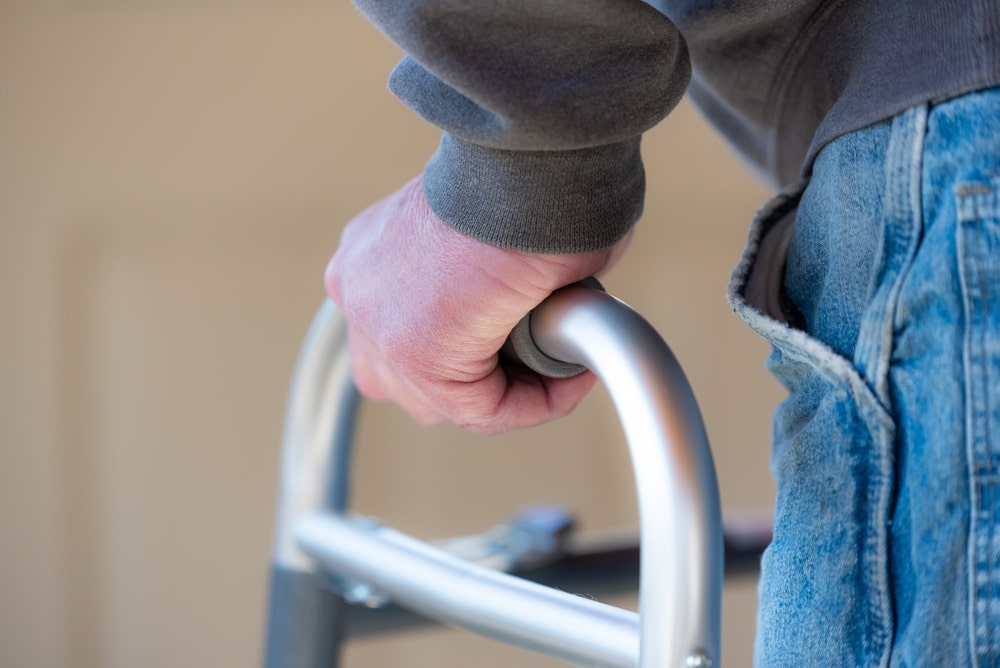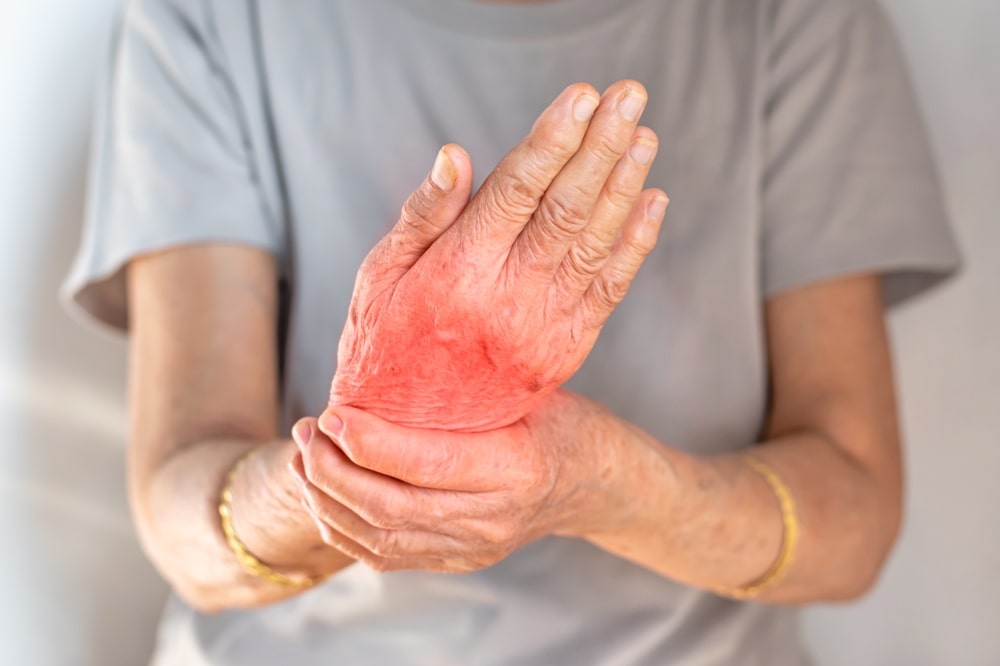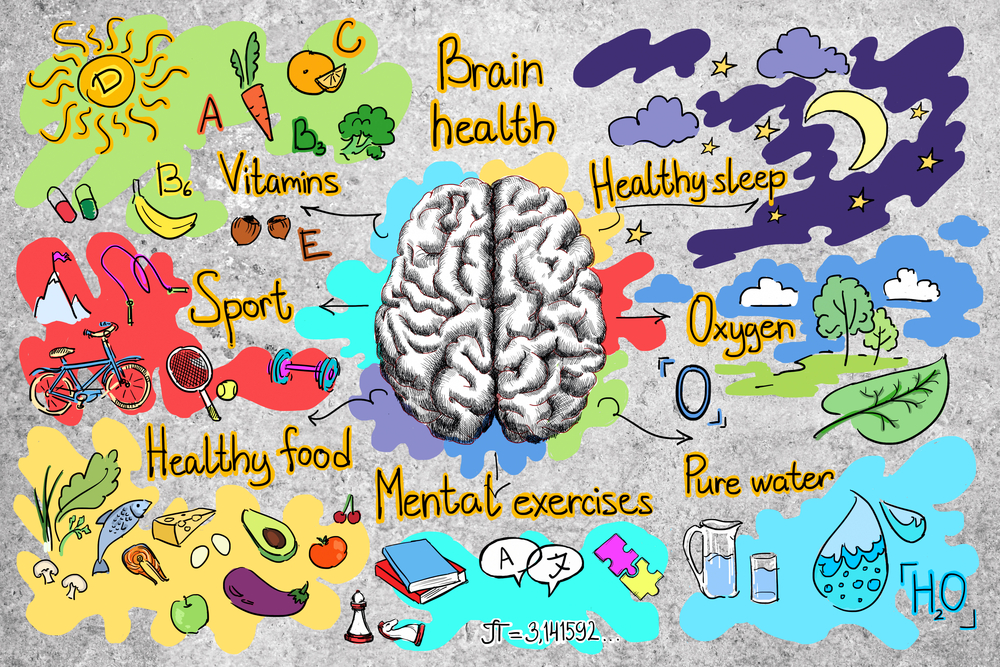Living with arthritis may be a nightmare if you do certain things!
When it comes to arthritis, mindset is as important as medication. The truth is that living with chronic pain and other debilitating symptoms of arthritis can be difficult. Even if you’re working with a great healthcare provider and have an effective and tailor-made treatment plan, it can sometimes be easy to fall off track and develop a negative attitude or bad habits.
Limited mobility and chronic pain may stop you from doing things you once loved doing. But there’s good news! In addition to treatments and medication aimed at improving your symptoms, some things you do or don’t do can make living with arthritis worse or better.
Here are 10 things to avoid doing if you have arthritis!

1. Thinking you can’t exercise
Many people with arthritis choose not to exercise because they’re afraid they’ll have more pain. This may be one of the biggest misconceptions regarding arthritis.
At the same time, it’s ironic because inactivity actually makes symptoms and disability from arthritis worse over time, whereas regular exercise keeps joints moving and improves mobility, strengthens the muscles around the joints, and prevents stiffness.
While living with arthritis can be difficult, experts point out that not moving at all is often what triggers flare-ups. Moreover, it’s important to know that exercise and physical therapy can also help ward off the progression of the condition.
If you’ve been sedentary out of fear that you’ll make your arthritis symptoms worse, talk to your doctor. A physical therapy program can help you with a gentle, joint-friendly exercise plan. It’s crucial to respect your pain, but you don’t have to let it stop you from moving.
2. Giving in to a sedentary lifestyle
This one complements the idea from above. Not only do some people living with arthritis think they can’t exercise, but they also think they need to be more sedentary than is necessary.
While rest is needed to restore the body from the bouts of intense pain and fatigue that are characteristic of arthritis, it can’t become a way of life. In other words, it’s important to take it easy when your body is telling you or after an especially active day, but it shouldn’t become a way of life.
That’s why striking a balance between rest and activity is best.
3. Thinking your arthritis will go away
Many types of arthritis are chornic diseases, which means they can’t be cured. As difficult as it is to accept this truth, it’s important to try.
Once you do that, living with arthritis will become easier. While you can’t get rid of the condition, it can be managed. Treatment advances can help improve range of motion, minimize pain, and prevent further damage.
It’s essential to see a healthcare provider as soon as you experience symptoms, so you can start treatment quickly. Living with arthritis isn’t always easy, but being realistic about your condition from the beginning—and understanding the fact that it may not go away—will help you make the decisions that will keep you as active and healthy as possible.
4. Eating unhealthy foods
Eating well and maintaining your ideal weight are especially crucial if you’re living with arthritis. Excess pounds can put a lot of stress on weight-bearing joints, which could make arthritis pain worse. According to experts, even moderate weight gain can stress your joints, which are already burdened by arthritis.
But that’s not all; diet can also have an impact on pain and inflammation in people with arthritis. Foods that may trigger symptoms flare-ups include deep-fried foods, processed foods, refined flours, red meat, trans fats, and sugar.
In addition, maintaining a healthy weight and eating a healthy diet can help to relieve some forms of arthritis pain and prevent further damage.

5. Avoiding mobility aids
A walker, cane, or wheelchair may be necessary for some people living with arthritis to get around on their own and stay independent. While you may not want to use these assistive devices, they are built to reduce fall risk, provide extra support, and increase independence.
It’s hard to accept that you need some sort of mobility aid to do things you once did without any sort of help. However, if you need one of these aids and don’t use it, you risk missing out on the activities you would enjoy.
A wheelchair or cane doesn’t define who you are, and no one will think less of you or judge you for using one. In fact, chances are you’ll be admired for getting out there and living your life in spite of needing a little help.
6. Ignoring your physical limitations
Just as there are people living with arthritis who aren’t active at all, there are those who push themselves over their comfort zone. The trick is to pace your activities and find a balance that works for you. Overdoing it is just as harmful as underdoing it.
Pushing beyond your limit can make pain worse and increase your risk of joint damage. Respect paint and heed your physical limitations when choosing the activities you want to engage in.
Arthritis can flare up from time to time. The most common triggers include overdoing an activity, such as housework or exercise, or an injury to the area.
7. Fearing medications that may help
Some people living with arthritis avoid painkillers because they are afraid they will get addicted to them, or they choose not to take biologic drugs because they fear potential serious side effects.
Keep in mind that your doctor will never prescribe something that may hurt you or that you could become dependent on. As long as you take the medication as directed, you’ll be fine.
In fact, arthritis progression can be halted or slowed through a mix of therapy, medication, and lifestyle. Certain forms of arthritis can be treated with methotrexate or other disease-modifying anti-rheumatic drugs that can slow disease progression.
Your doctor can work with you to find medications that will help you live comfortably. They will also give you information on how to take them (with or without food), when to take them, and the correct dosage.
8. Feeling guilty
Living with arthritis can seem like a burden. The condition can prevent you from doing some of the most normal and mundane things, such as taking care of your responsibilities at work or home. You may start to feel guilty when you realize you can’t do what you believe is expected of you.
The best thing you can do is to be honest if you’re struggling. Those who love you and care for you will completely understand and will be happy to help you accept and adjust to your limitations.

9. Withholding information
It’s tempting not to tell your doctor everything, especially if you fear you will have to change the treatment regimen you are comfortable with or have to go through unpleasant testing.
Some people living with arthritis may also not share all the symptoms they experience because they don’t want to admit that the condition is affecting their lives.
But in order for your healthcare provider to do their best to help you, they need to know everything. Talk openly about what concerns you have, what makes your condition better or worse, and what you don’t understand.
10. Asking “Why me?”
Without a doubt, living with arthritis comes with a tough-to-swallow truth: your life may be different from now on. When you’re having a particularly bad day or you’re in a lot of pain, it’s only human to ask yourself why you’ve been given this awful challenge—what you did to end up deserving such an unfair lot in life.
When you find yourself falling into this pessimistic state of mine, find ways to steer clear of thoughts that make living with arthritis worse. A therapist or counselor can help guide you to more positive thinking if you’re struggling to find a way there yourself. Even talking to a close friend can help you feel better.
By the way, the Mayo Clinic has a guide created by rheumatology experts to help those living with arthritis enjoy a life free from debilitating symptoms. You can buy it here!
If you liked our article on things you shouldn’t do when living with arthritis, you may also want to read 8 Vitamins and Minerals Scientists Recommend for Longevity.











Leave a Reply